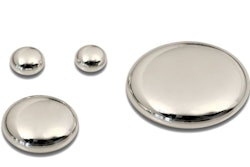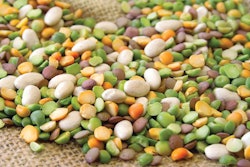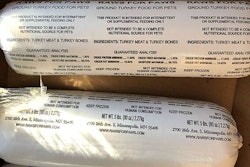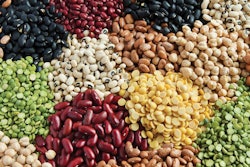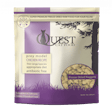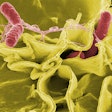
Veterinarians’ observations and scientific research may suggest correlations between certain dog food ingredients, taurine deficiency and canine dilated cardiomyopathy, in addition to risks imparted by genetics. This potential evidence led to the United States Food and Drug Administration’s investigation of cases of canine dilated cardiomyopathy that may be correlated to dog food diets high in legumes or potatoes, particularly grain-free dog foods.
“It is still early in the investigation, and right now we’re simply notifying the public, practitioners, and manufacturers that we are observing a signal that warrants further study,” said Anne Norris, FDA Center for Veterinary Medicine health communications specialist.
Veterinary observation of canine dilated cardiomyopathy
While the need for taurine supplementation in cat food has been established, empirical evidence is still being collected to correlate dogs’ diets with canine dilated cardiomyopathy.
“Taurine is an amino acid that is not nutritionally essential for dogs and is not required to be in dog foods,” Andrea Fascetti, Ph.D., professor of molecular biosciences in the University of California – Davis Department of Veterinary Medicine, wrote in an email.
“However, there are dietary factors (such as protein source, fiber type and concentration, and cooking or processing methods) and individual dog characteristics (such as breed and calorie needs) that impact how efficiently taurine may be made by the body,” she said.
“There have been recent cases seen in our hospital and elsewhere of dilated cardiomyopathy secondary to taurine deficiency in dogs that have been associated with commercial diets containing certain ingredients (such as legumes - beans, lentils, and peas - and root vegetables - white and sweet potatoes). Data collection and interpretation is ongoing for these recent cases. In the past we have also seen cases of dilated cardiomyopathy and taurine deficiency in dogs eating home-prepared diets (with either cooked and raw ingredients and those with and without meat), and other commercial diets with various ingredients and nutritional profiles.”
Fascetti recommended these six studies as representing an overview of the current state of knowledge about canine dilated cardiomyopathy.
Six studies on canine dilated cardiomyopathy
1. Idiopathic dilated cardiomyopathy in Dalmatians: nine cases (1990-1995) - Journal of the American Veterinary Medical Association, 1996
2. Dietary rice bran decreases plasma and whole-blood taurine in cats - The Journal of Nutrition, 2002
3. Taurine deficiency in dogs with dilated cardiomyopathy: 12 cases (1997-2001) - Journal of the American Veterinary Medical Association, 2003
4. Taurine status in normal dogs fed a commercial diet associated with taurine deficiency and dilated cardiomyopathy - Journal of Animal Physiology and Animal Nutrition, 2003
5. Taurine-deficient dilated cardiomyopathy in a family of golden retrievers - Journal of the American Animal Hospital Association, 2005
6. Dietary beet pulp decreases taurine status in dogs fed low protein diet – Journal of Animal Science and Technology, 2016



